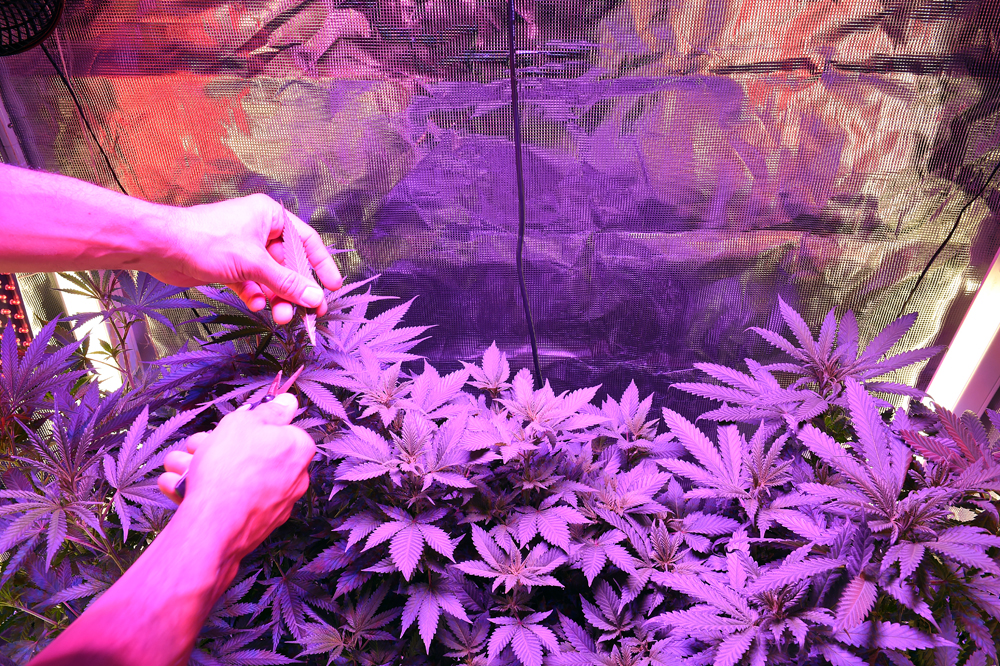One of the most contentious arguments before cannabis was legalized last year was whether provinces could ban home grows.

In the end, Quebec and Manitoba chose to completely forbid residents from growing their own marijuana.
The decision led to cranky exchanges between Quebec and Ottawa over whether Quebec actually had the right to override the federal Cannabis Act, which allows four plants per household. (Manitoba was less publicly confrontational, but also uncompromising.)
Then-Quebec premier Philippe Couillard said he’d challenge Ottawa in court over the issue.
“I will have wished that the federal Parliament at the end agreed with us on that,” he said last June after the Senate rejected an amendment to the Cannabis Act that would have let provinces decide whether to allow home grows.
“If they don’t, we will affirm our jurisdiction. Eventually, if we need to defend it in court, we will do so.”
The home grow ban looked likely to be a new chapter in Quebec’s long history of constitutional head-butting with Ottawa. Law professors opined on whether a constitutional challenge would succeed.
But the issue may never see the inside of a courtroom, perhaps to the disappointment of legal scholars.
Eight months after legalization, Quebec hasn’t actually charged anybody under its home grow ban, the province’s justice ministry told Global News this week.
And only one person has been charged under Manitoba’s ban, said a spokesperson for that province.

She wouldn’t give further details, other than that the ticket was issued in Winnipeg, and that the person was fined.
Winnipeg police told Global News that wasn’t enough information to go on to track the person down.

Get breaking National news
What that means is that only one individual in the whole country is in a position to challenge provincial home grow bans, and there’s no way of knowing who that person is.
In March of 2018, then-federal justice minister Jody Wilson-Raybould said Ottawa would not challenge provincial home grow bans in court, though she said she thought the federal government would win if it came to that.
“If an individual were to challenge a provincial law on the basis that they wanted to provide a licit home grow in their dwellings, that is their prerogative to do so, and the federal government would take a position at that point,” she said.
Because a fine of a few hundred dollars isn’t life-changing, it may be hard to motivate a person to spend years in court to avoid it, says cannabis lawyer Matt Maurer. In all likelihood, they’ll pay the fine and get on with life.
“Litigation isn’t fun, it’s time-consuming, it can be stressful, it usually is stressful, and it’s expensive,” he says. “Everything needs to come together to have someone do that.”
“We’re stuck in this interesting situation where we have these laws that may very well be unconstitutional, but they are also very hard to enforce. Because they’re hard to enforce, there aren’t a lot of charges, and without a lot of charges, the opportunity to challenge the law goes down.”

Organizations will sometimes pay the legal bills for a person to challenge a law that they feel strongly about.
Gerard Comeau, a New Brunswick man who fought a $292.50 fine for bringing alcohol in from Quebec, took his case all the way to the Supreme Court with the help of a foundation in Calgary. (He lost, and had to pay the fine.)
“There are people and organizations that I’m sure would fund that,” Maurer says. “There are people who have said they’d fund challenges to the driving law, there are organizations that would fund the home grow.”
“You would have to find someone who gets charged, who’s passionate enough about it and gets an organization behind him or her to fund it and to fight it.”
Are you the Winnipeg person convicted under Manitoba’s home grow law? Do you know who they are? Please let us know.






Comments